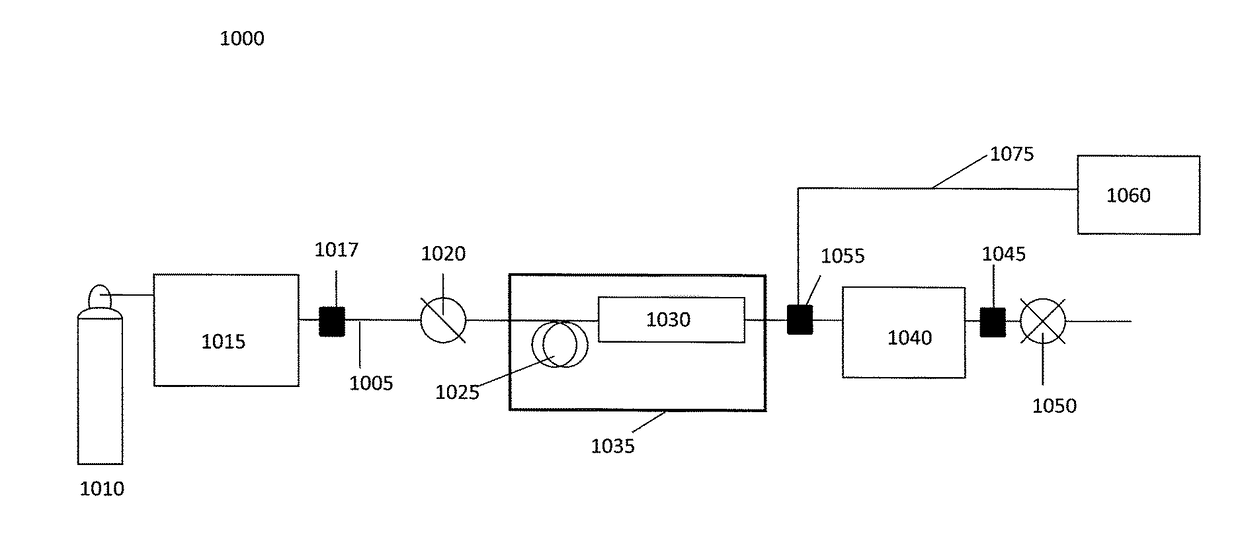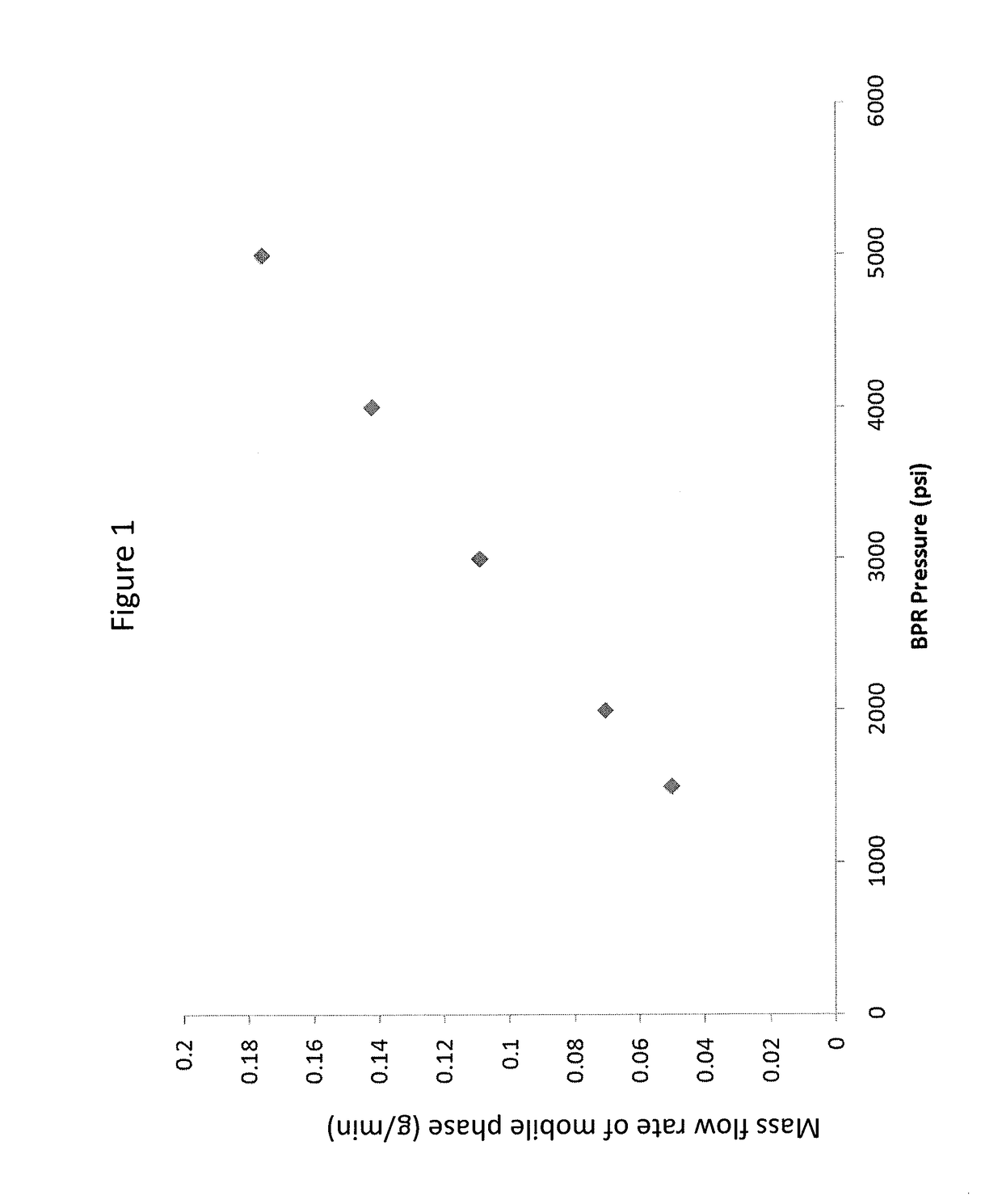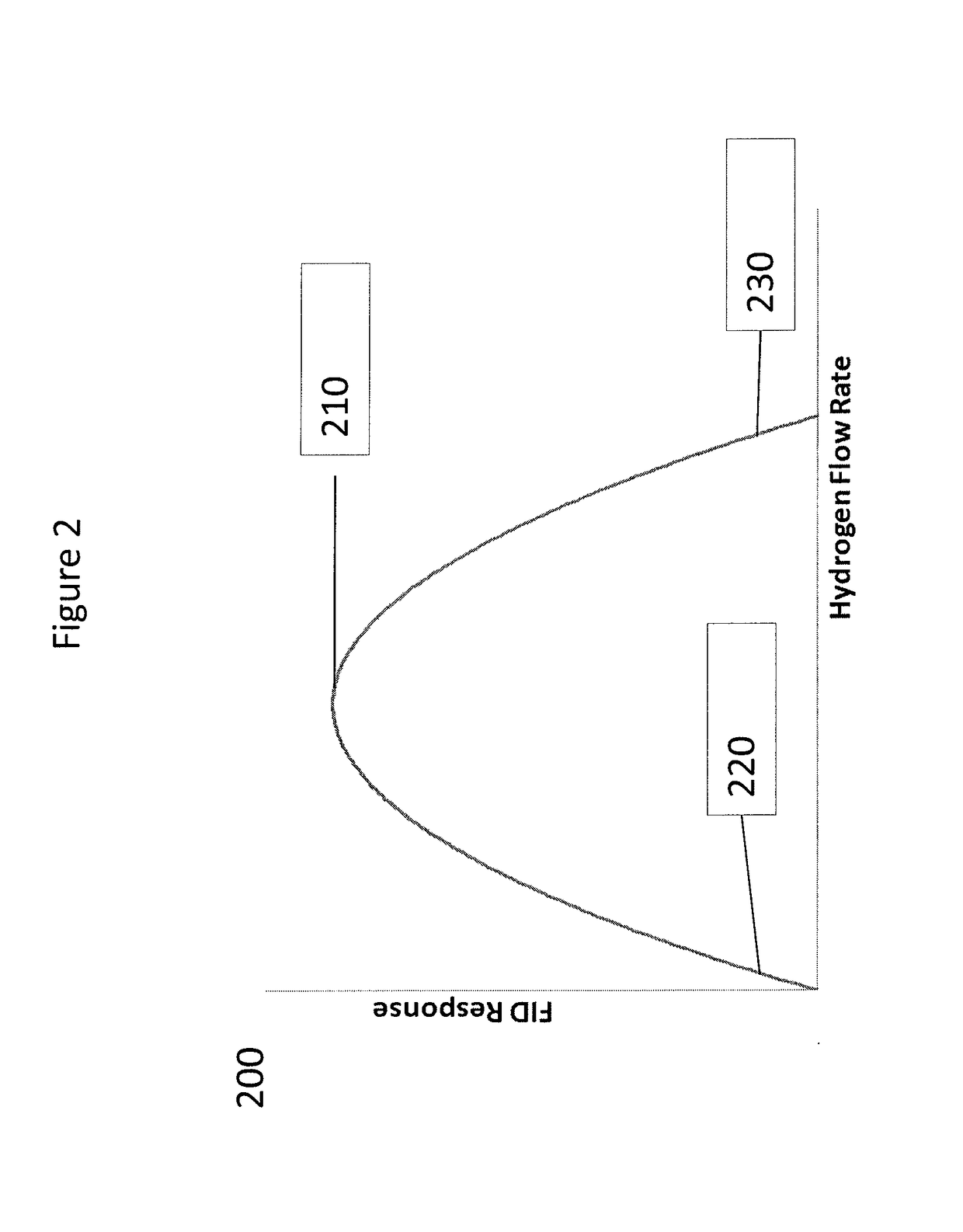Modulated flame gas flow rates in flame-based detectors
a flame gas flow rate and detector technology, applied in the field of flame gas mass flow rate modulation to a flame-based detector, can solve the problems of reducing detector performance, destabilizing or even suffocating the flame, and less than optimal detector response to the analyte, so as to save time for a practitioner, enhance chromatographic separation, and maintain confidence in the accuracy of results
- Summary
- Abstract
- Description
- Claims
- Application Information
AI Technical Summary
Benefits of technology
Problems solved by technology
Method used
Image
Examples
example 1
Determining a Correlation Between Mobile Phase Mass Flow Rate to Combustion Gas Flow Rate
[0100]A CO2-based chromatography system with SFC capabilities (e.g., a UPC2 chromatography system; commercially available from Waters Technologies Corporation, Milford, Mass., USA) was equipped with a flame ionization detector. Compressed carbon dioxide was used as the mobile phase. The flow rate of carbon dioxide (mL / min) as a decompressed gas entering the detector was measured at four different values, shown below in Table 1. The optimal flow rate of hydrogen gas (mL / min) necessary for optimal response at each value of decompressed carbon dioxide was determined empirically by preparing a calibration curve of analyte response to hydrogen flow rate. The results are given in Table 1 below:
[0101]
TABLE 1Optimal Hydrogen Gas Flow Rate as a Function ofDecompressed Carbon Dioxide Flow RateDecompressed CO2 flow rate atRequired H2 flow rate for optimalthe FID (mL / min)response (mL / min)14.23937.8551009020...
example 2
Adjustment of Combustion Gas Flow Rate Based on Measured Mobile Phase Mass Flow Rate
[0104]A chromatographic system having an adjustable flow rate of a carbon dioxide (CO2) mobile phase is provided. The chromatographic system is in fluid communication with a flame ionization detector, which is equipped with a split-flow interface (about 25:1 initial split ratio). The chromatographic system is situated upstream of the detector.
[0105]Pressure, temperature and flow rate data related to the carbon dioxide mobile phase are collected via sensors attached to the chromatographic system and relayed in real time to a microcontroller in electronic communication with the sensors. The data provided by these sensors is used to calculate the mass flow rate of CO2 through the chromatographic column. Since the density of the CO2 varies considerably throughout the system, the value at the pump head is used to determine mass flow. The carbon dioxide mobile phase is flowed at a rate of 0.8 mL / min with a...
example 3
Adjustment of Combustion Gas Flow Rate Based on Pre-Determined Mobile Phase Mass Flow Rate
[0110]A chromatographic system having an adjustable flow rate of a carbon dioxide mobile phase is provided. The chromatographic system is in fluid communication with a flame ionization detector, which is equipped with a split-flow interface (about 25:1 split ratio). The chromatographic system is situated upstream of the detector.
[0111]A density gradient for the CO2 mobile phase is pre-determined before beginning the chromatographic separation. The density gradient is selected based on prior separation results or theoretical considerations. The desired pressure, temperature and flow rate data related to the carbon dioxide mobile phase at every time point in the separation are input into a computer, which is converted to a theoretical mass flow rate of carbon dioxide by the computer.
[0112]During the course of the separation, data related to pressure, temperature and flow rate are also collected v...
PUM
| Property | Measurement | Unit |
|---|---|---|
| critical point | aaaaa | aaaaa |
| critical point | aaaaa | aaaaa |
| mass flow rate | aaaaa | aaaaa |
Abstract
Description
Claims
Application Information
 Login to View More
Login to View More - R&D
- Intellectual Property
- Life Sciences
- Materials
- Tech Scout
- Unparalleled Data Quality
- Higher Quality Content
- 60% Fewer Hallucinations
Browse by: Latest US Patents, China's latest patents, Technical Efficacy Thesaurus, Application Domain, Technology Topic, Popular Technical Reports.
© 2025 PatSnap. All rights reserved.Legal|Privacy policy|Modern Slavery Act Transparency Statement|Sitemap|About US| Contact US: help@patsnap.com



